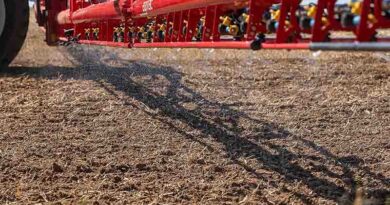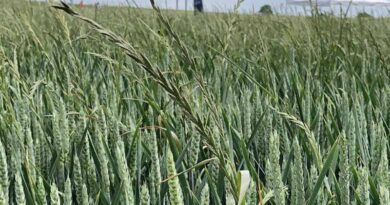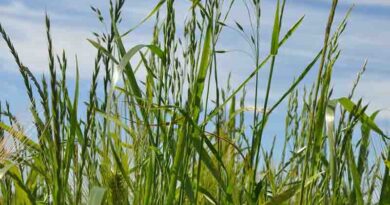Stack the odds for optimum grass weed control
03 August 2023, UK: Utilising cultural control methods in a grass weed IPM strategy can enhance results from DEFY pre-emergence herbicide applications, according to new research.
Furthermore, stacking up multiple cultural measures for grass weed control can have the same advantages of stacking herbicide active ingredients in the pre-emergence application.
NIAB trials video report
The key findings of new NIAB trials with Syngenta have been how powerful stacking up the cultural controls of the IPM programme can be in both black-grass and Italian ryegrass control strategies, reports NIAB weed biologist, John Cussans: “just as we have learned how to stack herbicide chemistry to get the best results.
“We have found that when you stack the competitiveness of hybrid barley, for example, with the effect of delayed drilling, and then overlay that with the herbicide strategy, that’s how to maximise the benefits of each of the elements as part of the IPM strategy.”
John highlighted the research has shown that utilising the cultural control techniques physically enhances the levels of control from the pre-emergence herbicide. The trials showed the greatest reduction in both black-grass and Italian ryegrass seed return when herbicides were ‘stacked’ or used in conjunction with hybrid barley and later establishment, compared wheat or conventional barley and earlier establishment.
“Not only do you get the beneficial direct suppressive effect of the hybrid barley, but you also get an increase in the apparent effect of the herbicide that you apply,” reported John. “Stacking up these elements you then maximise the efficacy of the herbicide to get much higher performance.”
Syngenta grass weed IPM
This phenomenon of enhanced herbicide efficacy in conjunction with cultural controls has also been seen by Syngenta Field Technical Manager, Georgina Young. Ryegrass trials in a high-pressure situation, and with known resistance issues, demonstrated 75% control from a DEFY and flufenacet + diflufenican pre-em treatment when used in conjunction with hybrid barley, compared to 63% control with the combination in conventional barley and 50% in winter wheat.
“Where we then added in a post-emergence flufenacet + pendimethalin application and a spring Axial Pro treatment, the overall control in hybrid barley was over of 96%, but 85% in conventional barley and winter wheat.
“It has confirmed that when you utilise more of the cultural control options available, it gives the platform for the herbicide to deliver the best possible results,” she advised.
“Managing resistance in ryegrass means stacking cultural methods and pre-emergence herbicides are even more important.”
Integrated strategies
John Cussans added that delayed drilling can be a highly effective measure in reducing grass weed pressure, providing greater opportunity to germinate and destroy weed seedlings between crops.
Furthermore, increased soil moisture levels that are typically experienced with later establishment of crops also creates conditions where pre-emergence herbicides can work particularly well, he advised.
“That has been one of the key planks in any IPM strategy,” John advocated.
With the introduction of hybrid barley, he also reported having seen a step change in the value of competitiveness to reduce grass weeds. Previous work to harness competition effects using winter wheat, by increasing seed rates, had created multiple issues with canopy management. The benefits to suppress grass weeds can now be gained using hybrid barley at conventional seed rates and drilling dates, he highlighted.
Optimum grass weed control
Georgina Young added that the Syngenta trials with NIAB have shown how growers can get the optimum results from IPM strategies with pre-em herbicide treatments, alongside the competitive advantages of hybrid barley – with high levels of performance from DEFY-based programmes on both blackgrass and Italian ryegrass through the approach.
Also Read: India’s decision to ban the export of non-basmati rice created a worldwide uproar
(For Latest Agriculture News & Updates, follow Krishak Jagat on Google News)















